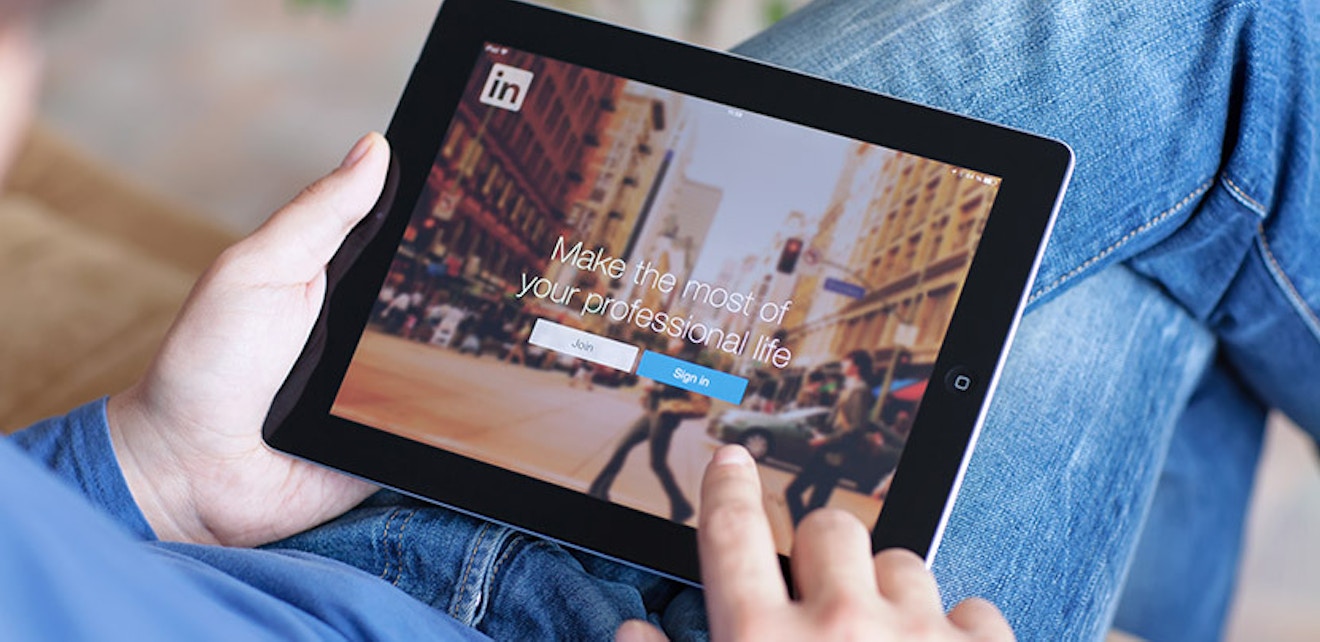Home > Blog
Read Time — 7 minutes
LinkedIn for Small and Medium Sized Businesses, Part 2

How to Market Your Business with LinkedIn in 2018
LinkedIn is the place to be for small and medium size businesses as we made the case for in Part 1 of this series. This is the prime online venue where SMBs network, get referrals, establish thought leadership, gain media contacts, and so much more.
In Part 2 of LinkedIn for Small and Medium Sized Businesses, we’ll show you how to get started marketing your business on LinkedIn and exploiting its powerful lead-generating and brand-building features.
There are two fundamental ways you can use LinkedIn:
Passive: Using LinkedIn personal profiles and a company page, you can increase exposure to people searching for the kinds of products and services you offer. Your existing customers can also provide testimonials on your page that will bring you credibility and likely lead to introductions from others who would like to learn more about your business. Once this information is on LinkedIn, it’s an effective form of passive marketing. We’ll cover these possibilities in the marketing steps below.
Active: Making the most of the world’s largest business network, you can actively develop a reputation as a dynamic organization by engaging with people who have shared interests. Professionals within your company can participate in groups related to your business and interests as well as conduct a dialogue with others in their forums. You can post frequent updates, notifying followers about your latest business projects, and you can actively search for new connections using a variety of tools which we will introduce to you in this article.
To use both active and passive approaches, here is a 5-step plan to get you started:
1. Create your company page
Your company page will be the portal or access point to all of your corporate activities on LinkedIn, and a powerful representation of your brand on the world’s largest business networking website. When you set your page up, LinkedIn will ask you for your company logo and a branded cover image to bring your page to life. You will post a concise description of what your company does, its specialties, and what makes it unique in its field. Once you have it fully set up, visitors to your company page will be able to learn about your company, your culture, employees, mission, customer perspectives, and products and services.
This basic page framework will give you passive marketing opportunities, enabling interested prospects to contact you to learn more by reading your page and contacting you. But don’t stop there—get active!
- Establish “thought leadership”: Your brand is dramatically enhanced when you provide individual perspectives on industry trends or news, and educate prospects about their options for products and services in your industry. Or, do you have professionals in your company who can write articles that help your company page viewers do their jobs better? Think of the voices in your organization, from the c-suite to sales people, each of whom has something noteworthy to say to your company page’s visitors. Proprietary content is extremely valuable to brand-building across channels, and especially on LinkedIn.
- Share other content: You don’t have to develop all of your own unique content. Think of the websites and news sources you read. What articles might be valuable to prospective customers or business partners who visit your page?
- Use video and images to stimulate engagement: If your company produces YouTube videos, SlideShare presentations, infographics, pictures, or any other visual and rich media, post these valuable assets on LinkedIn, where they can be enjoyed, liked, and shared. This generates more positive metrics than text alone—and a combination of several great visual formats multiplies visitor engagement on LinkedIn.
Get started creating your Company Page.
2. Promote your company page to gain followers
When you post content to your LinkedIn page including status updates, articles, and videos, your “followers” receive this information directly in their own LinkedIn feeds. So getting followers is the next order of business after setting up your page. Who can you get to follow you on LinkedIn, and how can you make this request?
- Employees: At company meetings, and in company emails, tell your employees that they are your brand advocates. Let them know you would like them to follow you on LinkedIn and share content with people in their networks.
- Clients and Partners: Send a direct mail or email invitation to all of your clients and partners inviting them to follow you on LinkedIn, where they can access all of the exciting content you will be providing. Add a blurb to other correspondences and marketing pieces you are already sending to encourage recipients to follow you on LinkedIn as well.
- Website and blog visitors: If you are doing some content marketing on your website, use social icons to direct viewers to follow your company page on LinkedIn for access to even more valuable content. Place these icons throughout your website and in your emails.
3. Create showcase pages to promote brands, business units, or projects
Showcase pages are a powerful marketing tool aimed at driving engagement and building relationships between members of your organization and other LinkedIn members. These targeted pages are extensions of your sub-brands, which enable you to share relevant content with segments of your audience who are interested in particular aspects of your business or specific lines of products. Just as you promote your company page to potential followers, you will want to take the same steps to promote your showcase pages to the appropriate segments of your audiences.
Learn more about creating Showcase Pages.
4. Get the word out with Sponsored Content
Because LinkedIn’s network is so broad, and its user profile data so rich, this platform is a powerful tool to reach beyond your followers to highly defined target audiences that match your own customer profiles. Sponsored Content is native advertising that enables you to reach the audiences you need, get your messages seen on every device, gain new followers, and even track the number of leads you are getting with conversion tracking.
Learn about ways to use Sponsored Content.
5. Appoint members of your organization to join LinkedIn groups as brand advocates
LinkedIn Groups enable professionals in the same industry to share information, find answers to questions, network, and establish their individual reputations as thought leaders and brand ambassadors. The world’s best companies in nearly every industry have employees that are highly engaged in LinkedIn groups, providing valuable information to others, and adding value to their brands in the process. Search LinkedIn Groups and find the groups where your customers are engaging, and then appoint someone within your company with the knowledge and passion to represent your company well in these groups. Be careful not to spam these groups with marketing posts about your business activities, but instead, engage in group dialogues.
Learn more about LinkedIn Groups.
Your company’s ROI from LinkedIn can be substantial, if you take this marketing platform seriously. We recommend either incorporating these LinkedIn tactics into your larger social media strategy, or assigning them to professionals in your organization as a key component of their roles.



